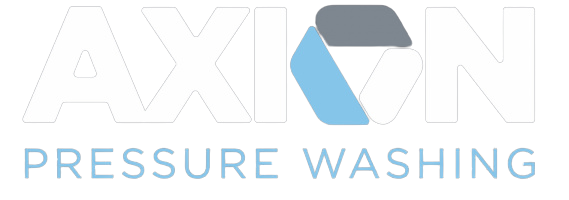If you’re a homeowner in Surrey or White Rock looking to clean the exterior of your home, you’ve probably heard the terms house washing and pressure washing used interchangeably. But while they both focus on exterior cleaning, they are not the same—and using the wrong method can cause serious damage to your property.
Understanding the difference between house washing and pressure washing is the key to protecting your investment, maintaining curb appeal, and choosing the right service for your home.
What Is Pressure Washing?
Pressure washing is a cleaning method that uses high-pressure water to blast away dirt, oil, grime, and other stubborn buildup from hard surfaces. It’s highly effective for materials like:
- Driveways
- Walkways
- Pavers
- Concrete patios
- Retaining walls
- Brick and stone
The water pressure used in this method can exceed 2,000–4,000 PSI, which is powerful enough to strip away layers of built-up debris. However, this amount of pressure is not safe for most parts of your home’s exterior.
What Is House Washing?
House washing, on the other hand, is a low-pressure cleaning method specifically designed to clean more delicate surfaces like:
- Vinyl siding
- Painted wood
- Stucco
- Exterior trim and soffits
- Gutters and window frames
Instead of relying on high pressure, house washing uses a process called soft washing. This method combines gentle water pressure with a biodegradable cleaning solution that removes:
- Algae
- Mold and mildew
- Dirt and dust
- Cobwebs
- Organic buildup
The result is a clean, refreshed exterior that’s not damaged in the process. Soft washing is the safest and most effective way to clean the exterior of your house—especially in humid areas like White Rock and South Surrey, where organic growth is common.
Why Pressure Washing Shouldn’t Be Used on Siding
Many homeowners assume that a pressure washer will clean siding faster and better. But blasting water at high pressure can lead to serious problems, including:
- Cracks in vinyl siding
- Water forced behind siding or into walls
- Damage to stucco or paint
- Voided warranties
- Wood rot from moisture intrusion
That’s why reputable companies always recommend soft washing for residential homes. It cleans deeply without putting your siding or structural integrity at risk.
When to Use Each Method
Here’s a quick breakdown to help you understand when each method is appropriate:
Use House Washing (Soft Wash) For:
- Vinyl, wood, or stucco siding
- Painted surfaces
- Gutters and eaves
- Around windows and trim
Use Pressure Washing For:
- Driveways and sidewalks
- Paved patios and decks (non-wood)
- Concrete steps and retaining walls
- Commercial surfaces with heavy grime or oil
Why the Difference Matters in Surrey and White Rock
The coastal weather in Surrey and White Rock creates ideal conditions for mold, moss, and algae growth. While pressure washing may seem like a quick fix, improper technique can cause more harm than good.
Professional soft washing provides long-lasting results without risking damage, especially on homes that haven’t been cleaned in years or that have fragile finishes.
Trust a Professional for the Right Method
At Axion Pressure Washing, we specialize in both soft washing and pressure washing—and we know exactly when to use each one. Our team evaluates every surface before starting to ensure the right pressure and cleaning solution is used for maximum results and total safety.
If your home exterior is starting to look dirty, dull, or covered in moss, don’t risk damaging it with the wrong method. Let a trained team take care of it the right way.

